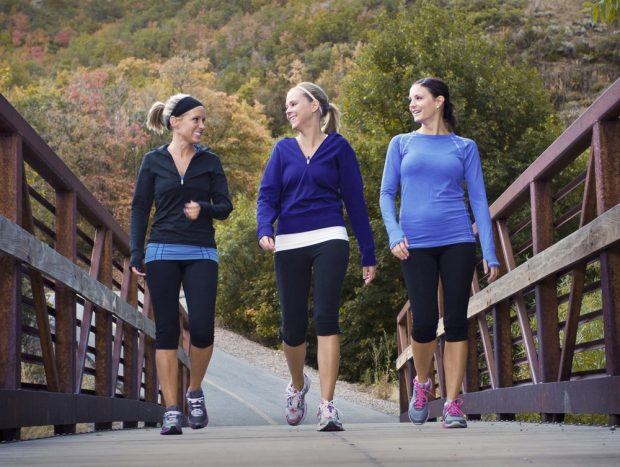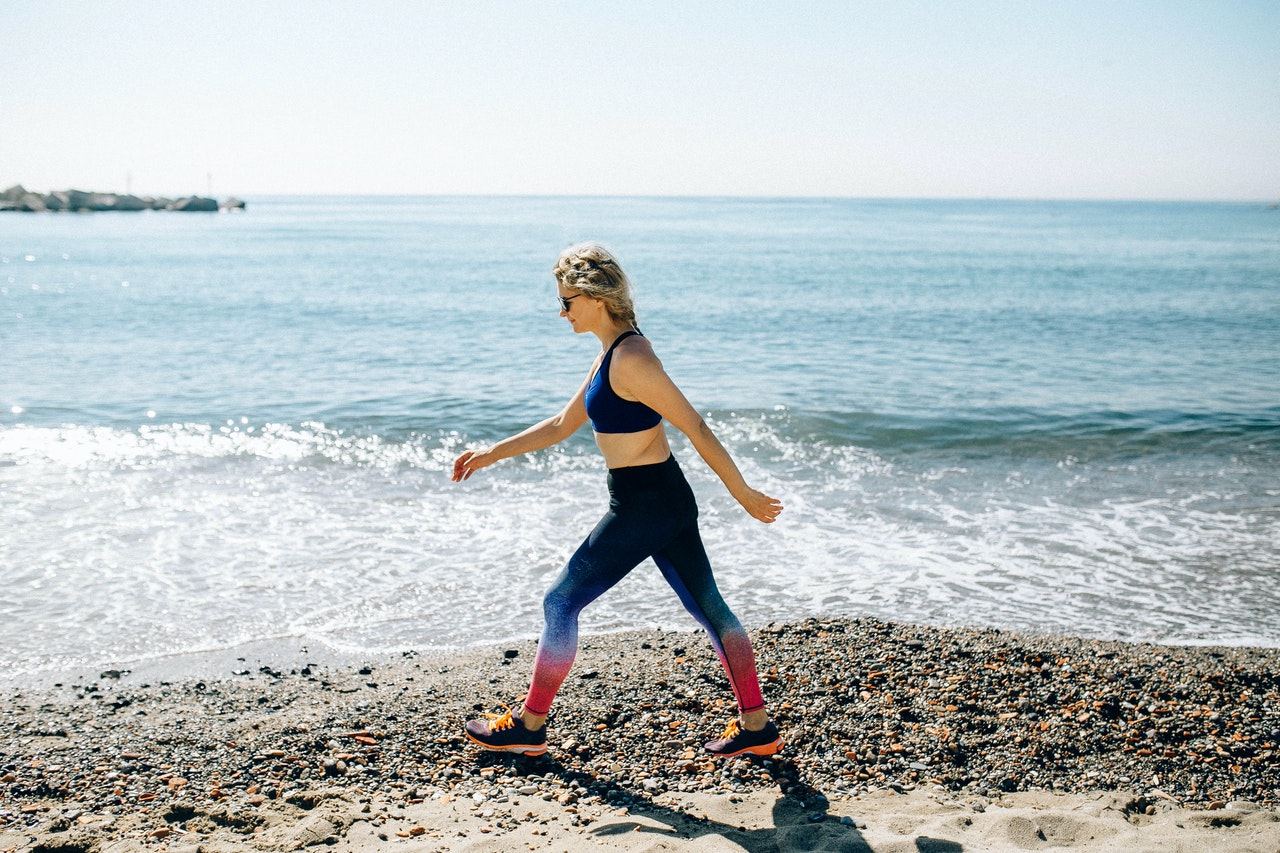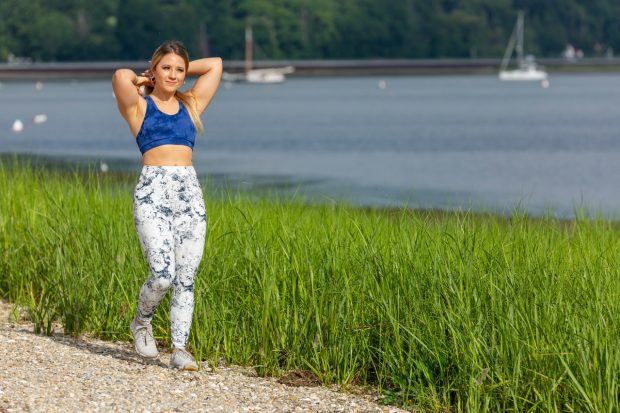Fitness is important and making sure you get enough exercise is one of the most effective ways for you to stay healthy and protect your longevity. However, sometimes life can get in the way, and it can be hard to get an hour out of your day to do HIIT, and sometimes, you might want to do something simpler. One of the easiest ways to stay fit is walking.
Granted, it’s not as intense as other exercises, but that doesn’t mean that it’s not effective. In fact, you don’t have to feel guilty about getting your steps in this way because according to experts, walking is enough of a workout to keep you living a long and healthy life.
Walking Is Enough To Boost Longevity
“The take-home point here is that even 15 minutes a day of walking, without stopping, provides benefits with regards to cardiovascular morbidity and mortality,” Michael Weinrauch, MD, Cardiologist, WellandGood
According to a study published last year in JAMA Network Open, individuals who walked at least 7 000 steps a day faced a 50-70 reduced risk of premature death, compared to those who walked less than 7 000 steps. As we’ve mentioned, walking is an underrated form of exercise, and it can improve your health in a number of ways.
4 Reasons Walking Is a Great Form of Exercise
1. Improves Blood Sugar
Just over 420 million people worldwide are living with diabetes, and the condition is directly responsible for about 1.5 million deaths every year. For those living with diabetes, and for those hoping to reduce their risk of developing the disease, managing blood sugar levels is of paramount importance.

In addition to following a healthy diet, exercise can help one manage their blood sugar levels. If you’re curious as to which form of exercise one should do, walking would be a great option. In fact, one systematic review acknowledged that walking was a useful management tool for people with type 2 diabetes. The findings revealed that walking improved glucose control in participants with type 2 diabetes.
2. Strengthens heart health
Cardiovascular health is incredibly important, especially because the healthier your heart is, the better equipped your body will be when it comes to dealing with other external stressors.
Staying fit is a great way to keep your heart strong and healthy, and walking has enough power to do this. Per a study published in the Journal of American Geriatrics Society, postmenopausal women who briskly walked experienced a 34% reduced risk of heart failure, when compared to those who walked at a casual pace.
3. Improves fertility
If you and your partner are looking to increase your chances of conceiving, might we recommend a romantic couple’s stroll?
A study from the University of Massachusetts Amherst set out to examine the modifiable factors, such as exercise, that can affect one’s ability to conceive. The study focused on healthy women ages 18 to 40 years old with a history of one or two pregnancy losses. According to the findings, walking served to increase the likelihood of pregnancy,
“One of our main findings is that there was no overall relationship between most types of physical activity and the likelihood of becoming pregnant for women who had already had one or two pregnancy losses, except for walking, which was associated with a higher likelihood of becoming pregnant among women who were overweight or obese.” – Lindsey Russo, health science specialist and study lead.
4. Assists mental health
Have you ever heard of the phrase “Go take a walk to clear your head”? Well, looks like there’s research behind that phrase, showing that walking is a great way to improve your mental wellness.
Be it moderate or intense levels of walking, taking a stroll can strengthen mental health. Additionally, it can also be utilized as a way to reduce the risk of mental health issues among older adults, according to a study published in Gerontology and Geriatric Medicine.
How much walking should I do?
According to the World Health Organization, adults are advised to aim for 150 minutes of moderate-intensity exercise a week.
Speaking to Eating Well, Austin Johnson, a Texas-based NCSF certified personal trainer, said that this would translate to a brisk pace that would likely fall between 3 and 4 miles per hour, “This would equate to a 15- to 20-minute-per-mile walking pace,” he says.
Stepping up your walking game
If walking has been your primary form of exercise, there are a few ways you can upgrade your workout to make it a bit more challenging. Here are a few things you can do to enhance your walking workout, courtesy of Eating Well,
- Start by walking at a steady and comfortable pace for 10 minutes, slowly working your way up to being able to walk for 30 minutes straight a day.
- Walk for 30 minutes a day at a moderate to brisk pace. Walking at this pace means that you’re able to talk, but not sing.
- Changing the landscape of where you usually walk is a great way to challenge your body. Try walking on a hiking trail or adjust your treadmill.
- Switch up your workout by climbing a flight of stairs every 10 minutes during your 30-minute walking workout, then switch to climbing them every 5 minutes for 6 total rounds.
- Pick up the pace by adding in light jogging or try intervals.
- Add in dumbbells for added resistance.
You can’t out-walk a poor diet
Yes, walking is an effective form of exercise, but that doesn’t mean that it’s enough to substitute for poor eating habits. A healthy diet is crucial for your longevity, so if you really want to stay healthy, then you need to walk well and eat well.
Takeaway
You may not be breaking a hard sweat, but that doesn’t mean that walking isn’t a legitimate form of exercise that can protect your health and longevity. While other forms of intense exercise can benefit your health, never underestimate the power of a good stroll.
References
Han, A., Kim, J., & Kim, J. (2021). A Study of Leisure Walking Intensity Levels on Mental Health and Health Perception of Older Adults. Gerontology and Geriatric Medicine. https://doi.org/10.1177/2333721421999316
Miremad, M-M, Lin, X, Rasla, S, et al. (2022).The association of walking pace and incident heart failure and subtypes among postmenopausal women. J Am Geriatr Soc. 70( 5): 1405- 1417. doi:10.1111/jgs.17657
Paluch, A. E., Gabriel, K. P., Fulton, J. E., Lewis, C. E., Schreiner, P. J., Sternfeld, B., Sidney, S., Siddique, J., Whitaker, K. M., & Carnethon, M. R. (2021). Steps per Day and All-Cause Mortality in Middle-aged Adults in the Coronary Artery Risk Development in Young Adults Study. JAMA network open, 4(9), e2124516. https://doi.org/10.1001/jamanetworkopen.2021.24516




![women [longevity live]](https://longevitylive.com/wp-content/uploads/2020/01/photo-of-women-walking-down-the-street-1116984-100x100.jpg)










